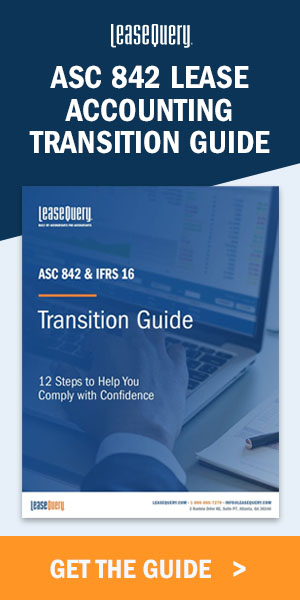This article, "GASB Standards Effective Soon: Leases and Subscription-Based IT Arrangements," originally appeared on MossAdams.com.
Summary provided by MaterialAccounting.com: This article provides an overview of the new GASB standards, Statement 87 and Statement 96, to help entities prepare for implementation. After a delay, the Governmental Accounting Standards Board’s (GASB) lease accounting standard, Statement 87, is finally imminent. And a new standard, Statement 96, Subscription-Based Information Technology Arrangements, will soon be effective for subscription-based information technology arrangements (SBITA). This standard conceptually mirrors the lease accounting standard. Below is an overview of both standards and ways your Tribal entity can prepare for implementation.
GASB Statement 87, Leases
Statement 87, Leases, is effective for fiscal years beginning after June 15, 2021, which essentially applies to fiscal years ending on or after June 30, 2022. This follows the GASB’s 18-month deferral of the effective date in response to the COVID-19 pandemic.
Provisions Covered in the Leases Standard
Statement 87 establishes a single model for lease accounting based on the principle that leases are financings of the right to use an underlying asset. For leases that aren’t determined to be short-term leases—generally with a maximum possible term of one year or less—a lessee is required to recognize a lease liability and an intangible right-to-use a lease asset. A lessor is required to recognize a lease receivable and a deferred inflow of resources. The resulting lease assets and liabilities are generally then recorded at the present value of payments the lessee is expected to make during the lease term, adjusted for certain incentives and direct costs as outlined in the standard.
Steps to Prepare for Implementation
Statement 87 is effective for 2022 year-ends, but retroactive adoption is applicable to all periods presented. Tribal entities that issue comparative financial statements will need to prepare fiscal 2021 data to allow for proper retroactive reporting. For example, this requirement would apply to Tribal casinos, which must prepare comparative financial statements to comply with National Indian Gaming Commission (NIGC) regulations. Given the amount of data necessary to identify and measure lease obligations, it’s important to start preparing now. Tribal entities can begin by performing an inventory of lease-type arrangements to identify all contracts that might qualify as a lease under the new guidance. Several items are scoped out of Statement 87, including:
- Leases of biological assets, such as timber, living plants, and animals
- Leases based on future performance
- Leases of intangible assets, including natural resources and software
Consequently, Statement 87 isn’t applicable to certain arrangements common to Tribal gaming facilities, such as:
- Gaming machine software arrangements
- Other contracts with fees based on performance, such as participation—revenue sharing—agreements and outsourced food and beverage contracts
However, the pending SBITA standard described below will require consideration of all software lease arrangements, except for those with fees based on performance. For additional details on Statement 87, its potential implications for Tribal entities, and implementation best practices, refer to our article, How Tribes Can Prepare for the New Lease Accounting Standard. You can also reference the GASB’s May 2021 guide, Implementation Guide No. 2021-1, which includes questions and answers related to implementing Statement 87.
GASB Statement 96, Subscription-Based Information Technology Arrangements
GASB Statement 96, Subscription-Based Information Technology Arrangements, defines an SBITA as a contract that conveys control of the right to use another party’s IT software, alone or in combination with tangible capital assets, as specified in the contract, for a period of time in an exchange or exchange-like transaction.
Provisions Covered in the SBITA Standard
Many of the accounting provisions in Statement 96 are similar to those in Statement 87. These include provisions related to determining and recording:
- Length of the contract
- Measurements for recording intangible assets and liabilities
- Bifurcation of contracts containing multiple components
Like Statement 87, Statement 96 also scopes out arrangements with fees based on performance, a relevant consideration for Tribal gaming facilities with gaming machine participation arrangements. To determine whether a contract conveys control of the right to use underlying IT assets, a Tribal entity should assess whether it has both of the following:
- Right to obtain the present service capacity from use of the underlying IT assets as specified in the contract
- Right to determine the nature and manner of use of the underlying IT assets as specified in the contract
If a contract meets the SBITA definition, a Tribal entity should record the right-to-use subscription asset—an intangible asset—and a corresponding subscription liability at the present value of payments the entity expects to make during the subscription term. These payments should be adjusted for certain incentives and direct costs as outlined in the standard.
Effective Date of Statement 96
Statement 96 is effective for fiscal years beginning after June 15, 2022, which essentially applies to fiscal years ending on or after June 30, 2023. Adoption is retroactively applicable to all periods presented. Even if your Tribal entity doesn’t plan to early adopt the standard, it may make sense to evaluate potential SBITAs at the same time you’re assessing leasing arrangements. This is due to Statement 96’s similarities to Statement 87 and the potential for certain contracts to include elements that fall within the guidelines of both standards. For additional details on Statement 96, read our article, GASB Issues Guidance on Cloud Computing.
We’re Here to Help
For questions about how these changes might impact your Tribe, please contact your Moss Adams professional.



